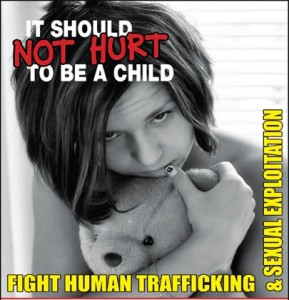I was wondering about L.T. just the other day. I saw former NFL star Lawrence Taylor on one of those Nutrisystem commercials last weekend. He was shouting the praises of the weight loss plan with the likes of Chris Berman and Dan Marino. I never liked Taylor when he was a player for the simple reason that he was a talented New York Giant who always seemed to make life hard on my Philadelphia Eagles. Because I was caught up in the Eagle fan frenzy, it was easy for me to fall into the trap of saying “not surprising” when this line-backing machine got himself into all kinds of trouble with drugs, alcohol, and prostitutes. Seeing L.T. on that commercial last weekend left me with the impression that he must be doing pretty well.
Maybe not. This morning’s paper informed me that Taylor was arrested yesterday in connection with the rape of a 16-year-old girl. Disturbing. What was even more disturbing is that the 16-year-old girl was delivered to Taylor’s hotel room against her will.
If I had read this report in yesterday’s paper, I might have been tempted to respond by thinking, “Isn’t this the kind of stuff that happens in other countries?” Perhaps its no coincidence that I spent some time yesterday afternoon reading through the latest edition of Christianity Today, a magazine that’s been hitting it out of the park in recent months. Two of the articles I read were especially sobering. One was Compassion International President Wes Stafford’s powerful testimony about abuse at the hands of the staff at an African missionary school. Then, there was Elisa Cooper’s article titled “Sexual Slavery on Main Street.”
The article opened my eyes to how the global problem of teen sex trafficking is not just “over there,” but “over here.” The statistics are stunning. Researchers estimate that between 100,000 and 300,000 American children are trafficked in the United States annually. Children under the age of 18 comprise the largest segment of individuals being victimized by sex trafficking in the United States. Cooper reports that one survey found that “children as young as 9 years old were being sold for sex by parents or boyfriends in exchange for illicit drugs.”
This stuff makes my head spin. Still, I think this is something we need to grapple with here at CPYU, in our churches, and in our communities. Grappling with it is going to take some time and a lot of thought if our response is going to make any kind of difference at all. That said, I have had some initial thoughts.
First, this is only going to get worse. The principle of supply and demand is playing out before our eyes. A hyper-sexualized culture that offers a constant feed of sexual stimuli down every alley and around every corner will only serve to increase the demand. This is the culture that is nurturing the youngest of the young, leading them to exercise the good gift of their sexuality in selfish and destructive ways. . . and believing that this kind of behavior is not only normal, but right.
Second, the home, church and community must band together in a unified effort to prayerfully develop strategies to slow the demand, and redeem the supply. Cooper’s article makes that abundantly clear, while highlighting the efforts of some who are doing just that.
Finally, we must exercise great patience with the growing pool of young victims. These are kids who are being molded, shaped, and formed in horrible ways as they pass through their most impressionable and formative years. Several voices in Cooper’s article make it clear that the process of undoing won’t be easy. These kids aren’t like a rope that needs one knot removed. Their lives are a tangled mess that can only be undone as a small army of people serve God by sitting down and systematically and patiently working together to untangle what’s been done.
I encourage you to take a few minutes out of your day to read Elisa Cooper’s article. Then, I encourage you to pray – and continue to pray – about what God would have you (us) do in response.

I’ve been completely obsessed with this subject lately. I suggest the book “Not for Sale” by David Batstone. It’s an extremely informative and thorough look at trafficking all over the world including America.